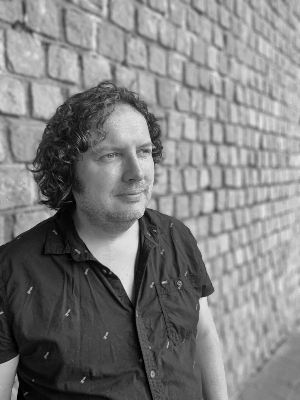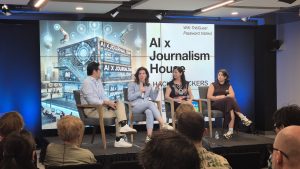“Talent can only be truly developed when combined with proper application”

In ancient times, the word talent was used to refer to a measure of weight – particularly gold – but in more recent times, while still referring to something of value, we use it to mean a ‘natural aptitude or skill’ that an individual possesses.
As the Coordinator of the Master in Media Innovation at Breda University, with a full-time track in Breda and an executive part-time track in Hilversum, I am fortunate enough to get to work with many talented individuals every year. But, while all the students who arrive on the programme already possess a number of talents, we have a duty to ensure that we help them hone and develop those talents within the context of our Masters programme.
Stephen King said “talent is cheaper than table salt” and argued that what separated a talented individual from a successful one was “a lot of hard work”. And, while I might value talent a little more than table salt, I do tend to agree that talent can only be truly developed when it is combined with proper application. A concert pianist earns their spot on stage not through talent alone, but through thousands upon thousands of hours of practice. Usain Bolt may have been blessed with fabulous genetics, but all of those unearthly 100m times were principally the result of his utter devotion to his training. So, on the Master in Media Innovation we hone and develop talent by ensuring the students work hard, and by insisting that they explore the boundaries of their talents. From the start of the course, we aim to open their minds through exposure to workshops on creativity, innovation, future thinking, and more – and as we progress into the lectures and the various subjects, we challenge our students to use the subjects as a lens with which to constantly re-examine their own ideas.
What I feel is important is that we offer students the opportunity to explore their capabilities through the challenges we present– whether that be the industry case we run with an actual industry client (previous clients we’ve worked with include KLM and Samsung), or the research projects students can choose to be a part of – and that we give them the potential to shape their abilities throughout the course.
But in order for that to succeed, we need to make sure that we are constantly providing feedback to the students on their work. Elon Musk said “I think it’s very important to have a feedback loop, where you’re constantly thinking about what you’ve done and how you could be doing it better” and I’m a big believer in this as well. Our students receive formative feedback during their assignments, and written feedback after every assignment, to ensure that they understand how to improve their skills.
Finally, at the end of the programme, students enter the graduation phase and can work on a research area and conceptual product that suits their aims. For some of our full-time students, they want to produce something that can act as a calling card for an industry or specific company; for some of our executive part-time students, they want to research a topic that will directly benefit the company that they are currently working in. Still others want to design a product and launch their own company. That freedom, for me, is important. We want our students to be able to use the Master in Media Innovation as a springboard to further success, we want our students to exit the course as the best version of themselves, we want our students to go do all the awesome things that they dreamed of.
We’ve just begun the 10th academic year of our full-time track, and we’ll start the 8th academic year of our executive part-time track at the beginning of February, and in that time I’ve seen many bright talents join the Master in Media Innovation who have then graduated shining all the brighter. I’m proud of the fact that we do our very best to help every student achieve their potential in their time with us.
And, while the talent may no longer be a measure of weight, I like to think our Master in Media Innovation graduates are certainly worth their weight in gold…
Oliver Davies is the Coordinator of the Master in Media Innovation at Breda University, an author, and a former videogame designer. If you have questions about the programme, do feel free to drop him an email at: davies.o@buas.nl


